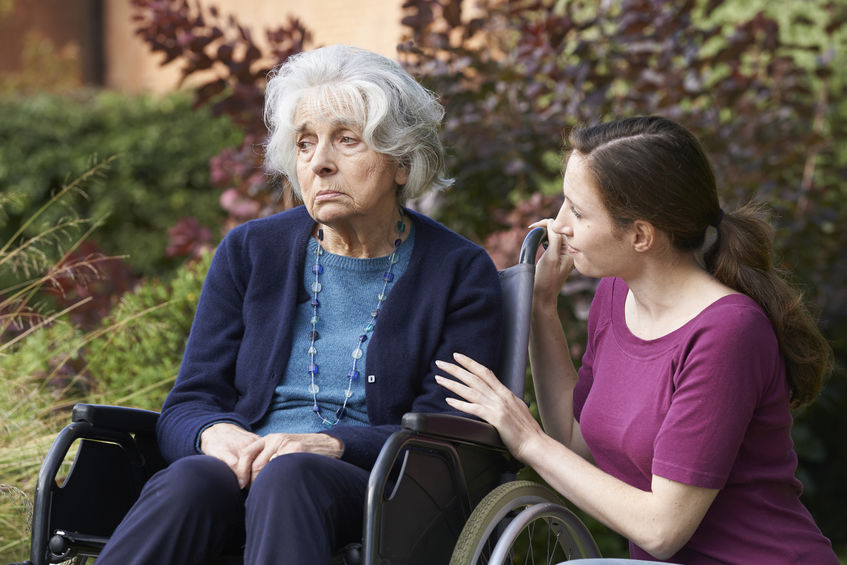When an elder comes down with dementia it’s not only stressful and heartbreaking, but it can be one of the most horrific things your family has to go through. Dementia causes sporadic loss of memory, cognitive dysfunction, hallucinations, confusion and mood swings, among other symptoms.
It’s hard and sad when your parent doesn’t remember who you are, or when they think you’re decades younger. It’s important, the moment you think your loved one may be experiencing the beginning signs of dementia, to have a conversation about their needs and how to take care of them in the future. Read how to start a conversation about dementia, when it’s time to bring in help, and how the services of an elder law attorney can be important.
Signs of Dementia
The first inklings of dementia can be so subtle that they can almost be unnoticeable. Maybe your loved one is having problems remembering where they left their glasses. Have you noticed them needing to keep detailed notes about their day so they can remember what they’ve already done? Perhaps they’re having unexplained mood swings. It can be very hard to tell at first if these are mild, correctable issues or if there’s a degenerative process at work.
If you have even the slightest inkling that your parent may be experiencing symptoms of dementia, you should have them looked at by a doctor and properly diagnosed. The first step is getting them to understand and accept that there’s a problem.
Make It about You
Of course it’s not about you, and the last thing you want to do is feel selfish. Remember, though, that phrasing it as though it’s your issue can trigger your parent’s desire to relieve you of burden. Tell them you want them to get checked out for your peace of mind. Getting them tested and diagnosed early is key; the earlier the diagnosis, the better the chances for treatment.
Talk to the Doctor First
It’s often a good idea to call the doctor before the checkup to give the doctor a heads’ up as to what’s going on. If you are cleared under HIPAA to get information on your loved one, the doctor can talk to you about what’s happening. Even if you can’t be fully included, however, you can still give the doctor important information about what may be going on.
Bring Other Family In
If you have siblings, bring them in. Aunts, uncles, and others in the family who are important to your parent can also have influence. The more people that express concern, the more likely the parent is to listen.
Be Gentle
Remember that your loved one is afraid and nervous, just like you are, and probably more. Acknowledge this fear and tell them you just want to help. Be calm and persistent.
Elder Law Attorney
Regardless of which direction the conversation goes, it’s important to start planning for the future. An elder law attorney can be vital to this process, in setting up power of attorney, creating a will, and working out final arrangements before cognitive dissonance becomes too great. If you would like more information, Stano Law can help. Read about our firm, and get in touch for a consultation today.








Leave A Comment